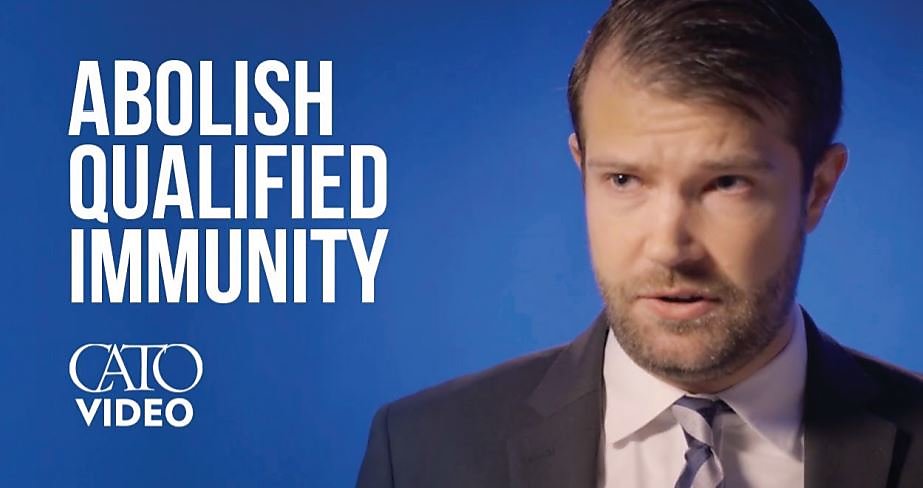Nearly three years ago, Cato’s Project on Criminal Justice, under the direction of vice president for criminal justice Clark Neily, chose to focus on what has become one of its top priorities: the elimination of qualified immunity. This doctrine, invented by the Supreme Court in the 1960s, makes it incredibly difficult to hold government officials accountable for violating people’s rights, despite a key federal law that provides any government official who does so “shall be liable” to the person wronged.

Since then, the push to reform or abolish qualified immunity has picked up new allies, from the Institute for Justice and Americans for Prosperity to the ACLU and ice cream magnates Ben Cohen and Jerry Greenfield. Over the past year, the issue has reached the Supreme Court, Congress, and state legislatures throughout the country. More people across the political spectrum have come to see qualified immunity reform as the key to the broader debate over police accountability and criminal justice and what Neily calls “a culture of near-zero accountability” for police officers.
In 2019, Cato brought together a diverse group of plaintiffs to file a cross-ideological amicus brief in the Supreme Court in I.B. and Doe v. Woodard, a case that originated in the outrageous warrantless strip search of a 4‑year-old child. Organizations that joined Cato’s brief included the ACLU and the NAACP Legal Defense Fund on the left and conservative organizations such as the Alliance Defending Freedom and the Second Amendment Foundation. Although the Court declined to hear the case, the strength and breadth of the pro-reform coalition had been demonstrated, and it attracted widespread notice among legal and political commentators. Versions of that brief have also been filed in several other cases as more challenges to qualified immunity have worked their way through the courts.
In September 2020, Cato published a comprehensive overview of qualified immunity and its flaws, by research fellow Jay Schweikert, titled “Qualified Immunity: A Legal, Practical, and Moral Failure” (Policy Analysis no. 901).
As Schweikert explains, “Qualified immunity is one of the most obviously unjustified legal doctrines in our nation’s history. Although it is nominally an interpretation of our primary federal civil rights statute, that statute says nothing about any immunities, qualified or otherwise.”
Recent cases have brought the issue again to the Supreme Court. In Taylor v. Riojas and McCoy v. Alamu, the Court overturned especially egregious cases of granting immunity to state actors who had committed heinous abuses. Schweikert, in a post on Cato’s comprehensive qualified immunity website UnlawfulShield.com, explained how these cases indicate that the Court is willing to roll back some of the most extreme applications of the doctrine, but he added that the justices are unlikely to go further than that.

This work is licensed under a Creative Commons Attribution-NonCommercial-ShareAlike 4.0 International License.